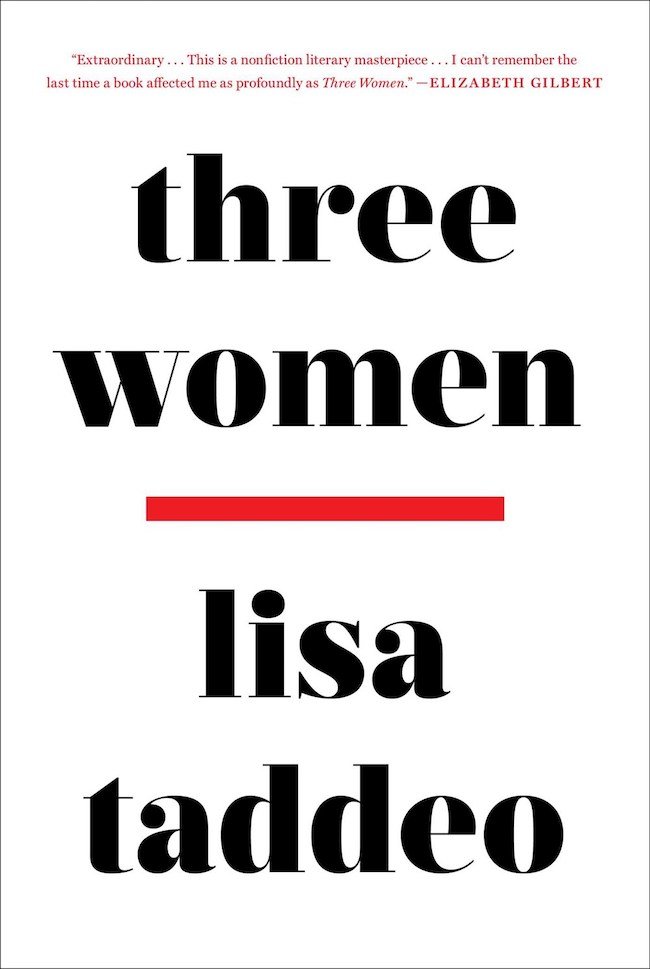
These are words on the lives of three women. The author spent, she says in the introduction of this book, thousands of hours with the women over eight years.
The book is airy, not a dense mass of words, which is what working on something closely for a long period of time can do to you; many authors seem quite easily content with placating their own desires, but when adjusting to the fact that one has to write truthfully—which this book does, I believe—about three different persons, it takes a special author who can exalt itself to virtue and zen-y bypass the self.
Still, it'd be brutal to suggest that a human author can separate itself completely from its subjects, and, to an even greater extent, from injecting itself into a book about others.
The rhythm of the book is what pulled me into it; you know the feeling of being lulled into security by a talented and veteran writer? That is what happened to me with this book.
While I never had occasion to wonder about my father’s desire, something in the force of it, in the force of all male desire, captivated me. Men did not merely want. Men needed. The man who followed my mother to and from work every day needed to do so. Presidents forfeit glory for blow jobs. Everything a man takes a lifetime to build he may gamble for a moment. I have never entirely subscribed to the theory that powerful men have such outsize egos that they cannot suppose they will ever be caught; rather, I think that the desire is so strong in the instant that everything else—family, home, career—melts down into a little liquid cooler and thinner than semen. Into nothing.
There's succinct curtness at the base of the book. Even the quotes are quite sparse. It creates a kind of ballet feeling where the dancers move around much by the use of small and quick steps. The rhythm is nearly poetic.
Because most people will agree—when a lover shuts down, refuses to meet you, doesn’t want his Oral-B back, doesn’t need his trail shoes, doesn’t return an email, goes out to buy another pair of trail shoes, for example, because that’s better than dealing with your mousetrap pain, it’s as though someone is freezing your organs. It’s so cold you can’t breathe.
Most people can probably relate quite well to this book. Much time, patience, and—I guess—revision and editing have gone into this book, to make it this readable and interesting.
The book holds out well throughout and is often enthralling, mainly because of how Taddeo has mixed the everyday, the mundane, and the extraordinary into one, thus formulating the sort of text that Marcel Proust and Maria Stepanova mastered.
It's a quite visceral book, keenly atoned to its subjects; the women aren't stereotypically written in any sense. Sure, one might be critical of some of their at-time leans, for example, "The Scorned Woman", but that's not stereotypical, but happens. A lot. And that's it, really. Taddeo has done away with the atypical and simply opted, it seems, for portraying women as women.
His eyes come up off the table to meet yours. They are cold and black and dead. Little agates, gleaming and stern, and older than you remember. In fact, you don’t remember these eyes at all. They used to be filled with love, lust. He used to suck your tongue into his mouth as if he wanted another tongue.
The stories are often of the sensual with humans in a modern age, although, as always, trapped in our past, unable to move away from headlights that are rushing towards us, Bambi in traffic. And it's thrilling. Taddeo's style is made for humanising sexuality, as opposed to the tripe that drips off Sex and The City, Fifty Shades of Gray, et al, which plagues much of current literature. This book does away with that and is lifted beyond. Thank Bog.
She wasn’t quite sure there was no better partner, but she was willing to find out.
The book seemed a bit dull for a short time but quickly picked up again. That's the harshest critique I can give it.
The best thing about this book is that it revives a sense of honesty without shock, which hopefully will revitalise any lovelorn reader who has missed terse literature that brings to life that which many other authors have abused. Every paragraph can be separated from its chapter, and still be of use; it takes a special author to manage that.
Posted from my blog with SteemPress : https://niklasblog.com/?p=23426
Hi pivic,
Visit curiesteem.com or join the Curie Discord community to learn more.
Congratulations @pivic! You have completed the following achievement on the Steem blockchain and have been rewarded with new badge(s) :
You can view your badges on your Steem Board and compare to others on the Steem Ranking
If you no longer want to receive notifications, reply to this comment with the word
STOPVote for @Steemitboard as a witness to get one more award and increased upvotes!
i hope all the best for you and congratulations on the curie voteehy dear @pivic, your review is so beautiful! you made me want to read this book. (incidentally: I love reading women's stories and seeing how different writers approach the subject. My absolute favorite in this sense is the South American writer Ángeles Mastretta).
Thank you so much both for your words on my writing and for your tip.